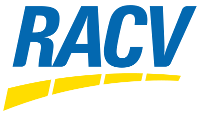
Driving safety
Driving
Transport
Weather
Location & maps
Facts & figures
Communications
Holidays
Visitor information
Your safety
Government
Break downs
The RACV (Royal Automobile Club of Victoria) provides roadside service across Victoria to its members and also to motorists from interstate motoring club affiliates (NRMA, RACQ, RACT, RAA, RAC and AANT) who are driving in Victoria. Telephone 13 11 11 for help.
Help phones (emergency phones) are installed on urban and rural freeways throughout Victoria. They connect to the VicRoads traffic control centre from where help can be organised.
Melbourne's toll roads are monitored continuously along their entire length by cameras. If you break down on CityLink, phone Linkt on 13 33 31 for assistance. If you break down on EastLink, phone (03) 9955 1400. Otherwise you can use emergency phones which are located at regular intervals along both tollways and inside tunnels.
Accidents
If you are involved in an accident on the road, follow the guidelines below.
- If anyone has been injured, telephone 000 immediately.
- If the accident is causing a traffic hazard or it poses ongoing danger to individuals or property, telephone 000 for assistance.
- If any drivers involved appear to be under the influence of alcohol or drugs, telephone 000.
- If damage was caused to another vehicle or someones property, and it is not possible to contact the owner, inform Victoria Police.
- If there are no injuries and the owners of any damaged vehicles or property can be notified, you do not need to notify the police, but you must exchange full details between all parties involved.
Wildlife
Stay alert for wildlife on Victoria's roads. Each year, thousands of animals are killed by motor vehicles, with the main victims being kangaroos.
Try to avoid driving between dusk and dawn through rural areas populated by native wildlife. Many native animals are nocturnal, so it is during that time they are actively searching for food and may wander onto roads and cause an accident. If driving during that time, slow down, keep an eye out for animals, and if any cross in front of your vehicle, dip your headlights so as not to dazzle them. If you injure wildlife while driving, call Wildlife Victoria on (03) 8400 7300 or log an incident report on their website.
Safe motoring
Alcohol affects the judgement and reaction time of drivers and is a major factor in many road accidents. Driving under the influence of alcohol above the limit applicable to your licence type is a serious offence. Random breath tests are conducted by police throughout the state, day and night. If you are planning to drink, the safest option is not to drive but either make use of public transport, hire a taxi, or arrange for someone else to pick you up.
Driving while under the influence of drugs has also been found to be a contributing factor to a number of road accidents. It is illegal to drive while affected by an illicit drug, such as cannabis, ecstasy, ice or speed, as well as legal drugs which impair a person's ability to drive. Police conduct random drug tests of drivers throughout the state.
Driver fatigue is responsible for a significant number of accidents on Victoria's roads. To help combat fatigue on long trips, start a trip after a good night's sleep, drive at times you are normally awake, and take regular breaks. The only cure for fatigue is sleep, so even a 15 minute "powernap" offers safety benefits.
Courtesy on the road
Every day, millions of vehicles use Victoria's extensive road network. Drivers have a responsibility to share the roads and consider all other road users. Courteous driver behaviour helps to improve everyone's driving experience and motorists should keep a number of points in mind.
- Drivers of large vehicles, such as trucks and vehicles towing caravans or trailers, may have restricted visibility and typically cannot accelerate or stop as quickly as cars can. Avoid cutting in front of them or performing quick manoeuvres around them. Also make allowances for those vehicles when they are merging, changing lanes, entering intersections or roundabouts.
- Look out for motorcycles and bicycles. They are less noticeable than vehicles, however they have equal rights to use the roads.
- Use your indicators well in advance to give warning of changes to your driving direction to other motorists. Make full use of any turning lanes to enable traffic behind you to pass by as you slow down.
- On multi-lane roads ensure you don't hinder other motorists by keeping out of the right-hand lane unless you are preparing to turn right, overtaking another vehicle or all lanes are congested. Vehicles over 4½ tonnes, excluding buses and caravans, are prohibited from using the furthermost right-hand lane on several freeways in Victoria which have 3 or more lanes.
- If you intend to drive leisurely below the speed limit on single-lane roads and there are vehicles queued behind you, consider pulling over briefly to allow them to pass.
- If a driver gives up their right-of-way to you, a quick wave as a sign of appreciation will promote courteous behaviour on the road.
Travelling with children
Do not leave children unattended in vehicles. The temperature inside a locked parked car can rise dramatically in a short time, even in mild weather. Young children may be particularly affected by heat as they lose fluid quickly and can suffer heatstroke. Even if you leave your car for just a minute, take your children with you. As well as it being dangerous to leave a child unattended in a locked car, it is also illegal.
